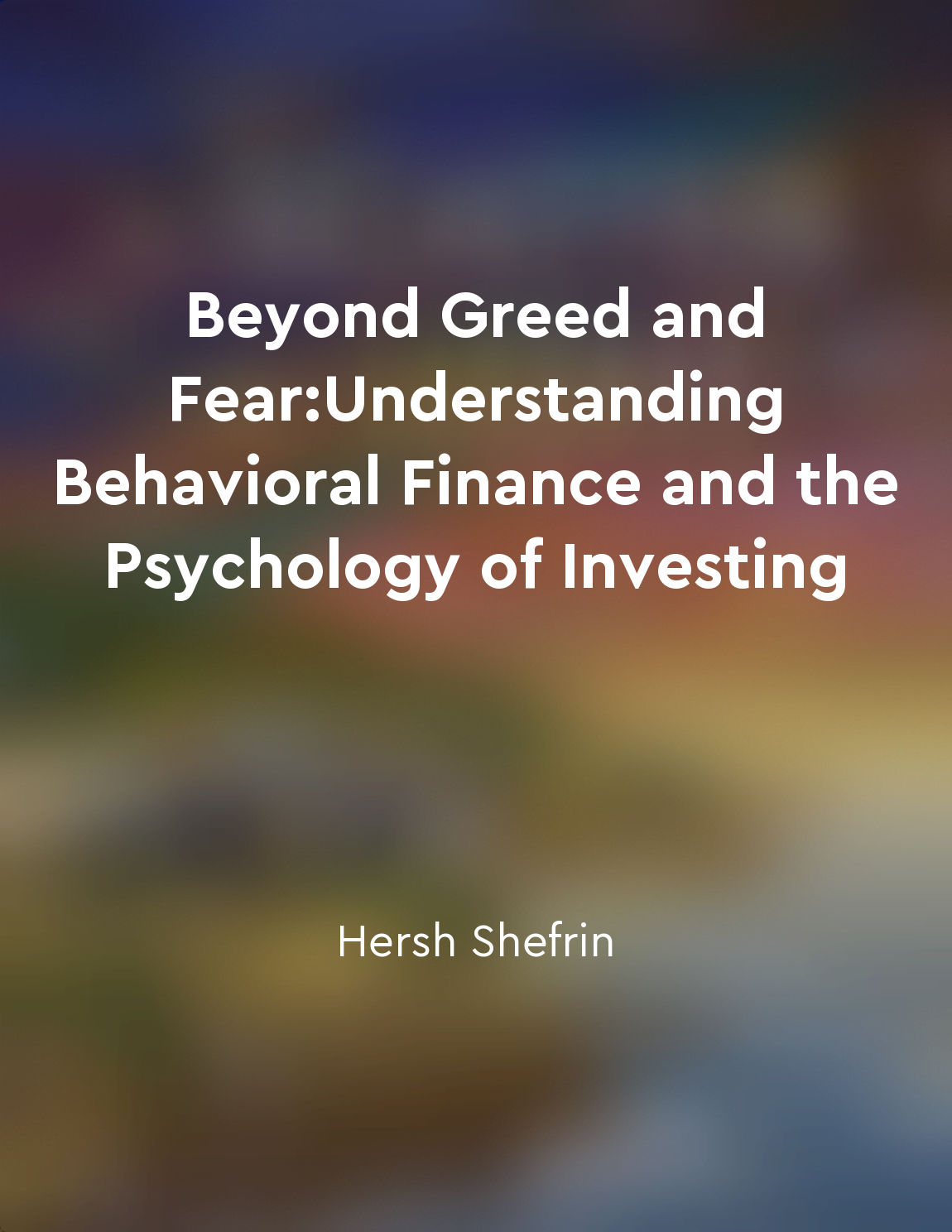Instability in the financial system is a byproduct of speculative excess from "summary" of A Short History of Financial Euphoria by John Kenneth Galbraith
Speculative excess is the breeding ground for financial instability, a fact well known to those who have studied the history of financial euphoria. When individuals and institutions engage in excessive speculation, they create an environment that is ripe for instability. This is because speculation often leads to price distortions and unsustainable trends in the financial markets. During periods of speculative excess, investors tend to abandon rational decision-making and instead follow the herd. This herd mentality can result in the formation of asset bubbles, where prices are driven to unsustainable levels by the collective actions of speculators. These bubbles inevitably burst, leading to sharp corrections in asset prices and widespread financial instability. The aftermath of speculative excess is often characterized by panic and fear as investors rush to unwind their positions. This mass exodus exacerbates the instability in the financial system, as asset prices plummet and liquidity dries up. The resulting financial crisis can have far-reaching consequences, impacting not only investors but also the broader economy. In the end, it is clear that speculative excess is a key driver of instability in the financial system. As history has shown time and again, periods of euphoria fueled by excessive speculation inevitably lead to financial crises. Only by recognizing the dangers of speculative excess and taking steps to curb it can we hope to avoid the destructive cycle of boom and bust that has plagued financial markets throughout history.Similar Posts
Mental shortcuts can lead to suboptimal outcomes
When individuals rely on mental shortcuts to make decisions, they often do not consider all relevant information or weigh it ap...
Anchoring leads investors to rely on irrelevant information
Anchoring is a cognitive bias that leads investors to rely heavily on irrelevant information when making investment decisions. ...

Education and experience do not always prevent behavioral biases
One might think that with education and experience, individuals would be able to avoid falling prey to behavioral biases. Howev...
Regulatory reforms were implemented
In response to the financial chaos that followed the Crash of 1929, a series of regulatory reforms were introduced. These refor...

Bubble psychology shapes market behavior
The phenomenon of "Bubble psychology shaping market behavior" is a powerful force that can drive financial markets to extreme l...
A lack of financial literacy contributes to the susceptibility to market manias
The notion of financial literacy is of considerable importance in understanding the dynamics of market manias. When individuals...
Instability in the financial system is a byproduct of speculative excess
Speculative excess is the breeding ground for financial instability, a fact well known to those who have studied the history of...
Speculative manias create wealth disparities and social unrest
The phenomenon of speculative manias has a profound impact on the distribution of wealth within a society, often leading to sig...
Political pressure and decisionmaking
In the high-stakes world of financial crisis management, political pressure plays a significant role in decision-making. The re...
